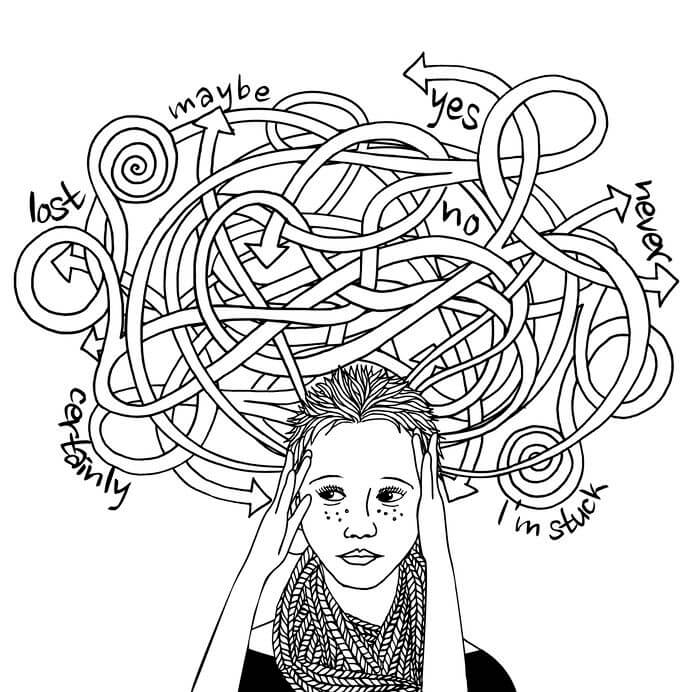
For the past couple of days, I have been on my deathbed, as they say. I’ve had no motivation to do anything but sleep, roll over, rub my eyes, and repeat. But for the brief moments when I wasn’t falling back into a doze, I was thinking about all of the things that I’m going to have to get done once I’m feeling better and the stress that it’s all going to cause me.
This is an example of an intrusive thought. If you are unfamiliar with that term, an intrusive thought is an unwanted idea that pops up into our brains unannounced, make it difficult for us to focus, and can cause lots of unwanted and unnecessary stress. The severity of these thoughts can range drastically, but for some people, they can be almost debilitating. They can manifest through several different types of mental health conditions, such as anxiety, depression, and OCD, but today, I want to discuss some different strategies that one could take to help reduce intrusive thoughts and how to handle them when they happen.
One cause of intrusive thoughts is experiencing high levels of stress. Which is a little ironic, isn’t it? These thoughts are caused by stress, but subsequently lead to even more stress…enough already! I hate to sound like a broken record here, but some of my favorite ways to manage my stress when I feel it worsening are practicing controlled breathing, meditating, journaling, and recently, using soothing fragrances and essential oils, such as lavender and eucalyptus.
Another way to deal with these bothersome thoughts is to think backwards and identify the root of the fear. I recently listened to a podcast that discussed the power that comes with being able to maintain healthy thinking processes and knowing how to identify the root causes of what is bothering you. Basically, it all comes down to understanding your core values and boundaries, and once you know those, it is much easier to identify why certain situations evoke negative or stressful emotions.
The last strategy that I want to discuss is facing these intrusive thoughts head on. It may seem easier to just “run away” from what’s bothering you and suppress it until absolutely necessary, but this will only cause you more stress in the future, I promise. Reframing negative thoughts into positive ones isn’t an easy task, but there is good in everything, and I think that’s something to hold onto. Whatever is stressing you out in the moment will teach you something for the future and will make you a better and stronger person down the road. It’s all about the mindset!
With all that being said, I hope that if you take anything away from this post, it’s that intrusive thoughts do not define you. You will overcome whatever may be making you anxious and everything will work out. Accept these thoughts without judgment, don’t suppress them, and work through it.
It will all be ok 🙂

This is really amazing– you always give great advice on self-care and I think you really hit the nail on the head this time. It’s odd to think that accepting intrusive thoughts is the first step in managing them, but your method of accepting negative thoughts without judgment and working through them seems like it would be effective. I also think the image you included does a great job of helping the reader understand the chaos and anxiety associated with intrusive thoughts.
I think it’s really important how you addressed that your intrusive thoughts don’t define you. We don’t think about that enough.